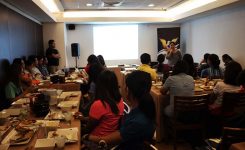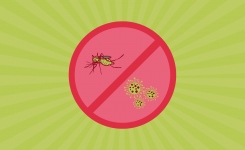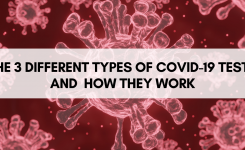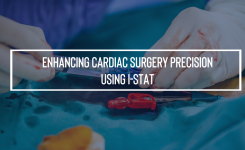Blog
The Rise of Antibiotic-Resistant Bacteria: What You Need to Know
Last September 2017, the World Health Organization (WHO) confirmed that the world is running out of antibiotics. WHO classified this as a high-priority issue since most drugs currently in the clinical pipeline are only modifications of existing antibiotics. On February this year, the WHO even mentioned that infections such as pneumonia, tuberculosis, and gonorrhea are becoming harder to cure. Due to antibiotics misuse, certain medications are becoming significantly less effective. Without urgent responsive action, the world could be heading to a post-antibiotic era.
Antibiotics, as one of the most widely-used bacteria-killing drugs, are effective in treating illnesses and preventing infections. However, due to the rampant cases of antibiotics misuse, antibiotic-resistant bacteria have begun to emerge. This happens when bacteria adapt in response to the frequency of medicine intake, particularly with the case of self-medication. Without notable behavior change, antibiotic resistance will remain a major threat.
As more people subscribe to self-medication, medicine misuse now hinders the patients’ supposed recovery from diseases in the future. This causes longer hospital stays and mountains of hospital fees which some of us couldn’t afford nowadays. It’s a fact that medical technology is innovating year after year. However, if independent antibiotic intake continues to be practiced, we may hit a significant roadblock in our pursuit of a healthier world.
On another note, actions against antibiotic resistance have been made publicly known to stop the practice of antibiotics misuse. Various campaigns now inform the public about the ways to lessen the effects of antibiotic-resistant bacteria. One of the most advisable countermeasures is to only use antibiotics with the guidance of a healthcare professional. Consuming antibiotics without proper prescription could potentially lead to health complications that could cost more than one would hope for.
Currently, the Global Antibiotic Research and Development Partnership (GARDP) supports research and development through public-private partnerships to finally rid of antibiotic misuse. By 2023, the organization hopes to develop and improve the safety, effectiveness, and acceleration of entry of the new antibiotic drugs.
Sources:
http://www.who.int/news-room/fact-sheets/detail/antibiotic-resistance
http://www.who.int/news-room/detail/20-09-2017-the-world-is-running-out-of-antibiotics-who-report-confirms
Featured Image:
Freestocks.org (via Unsplash)








